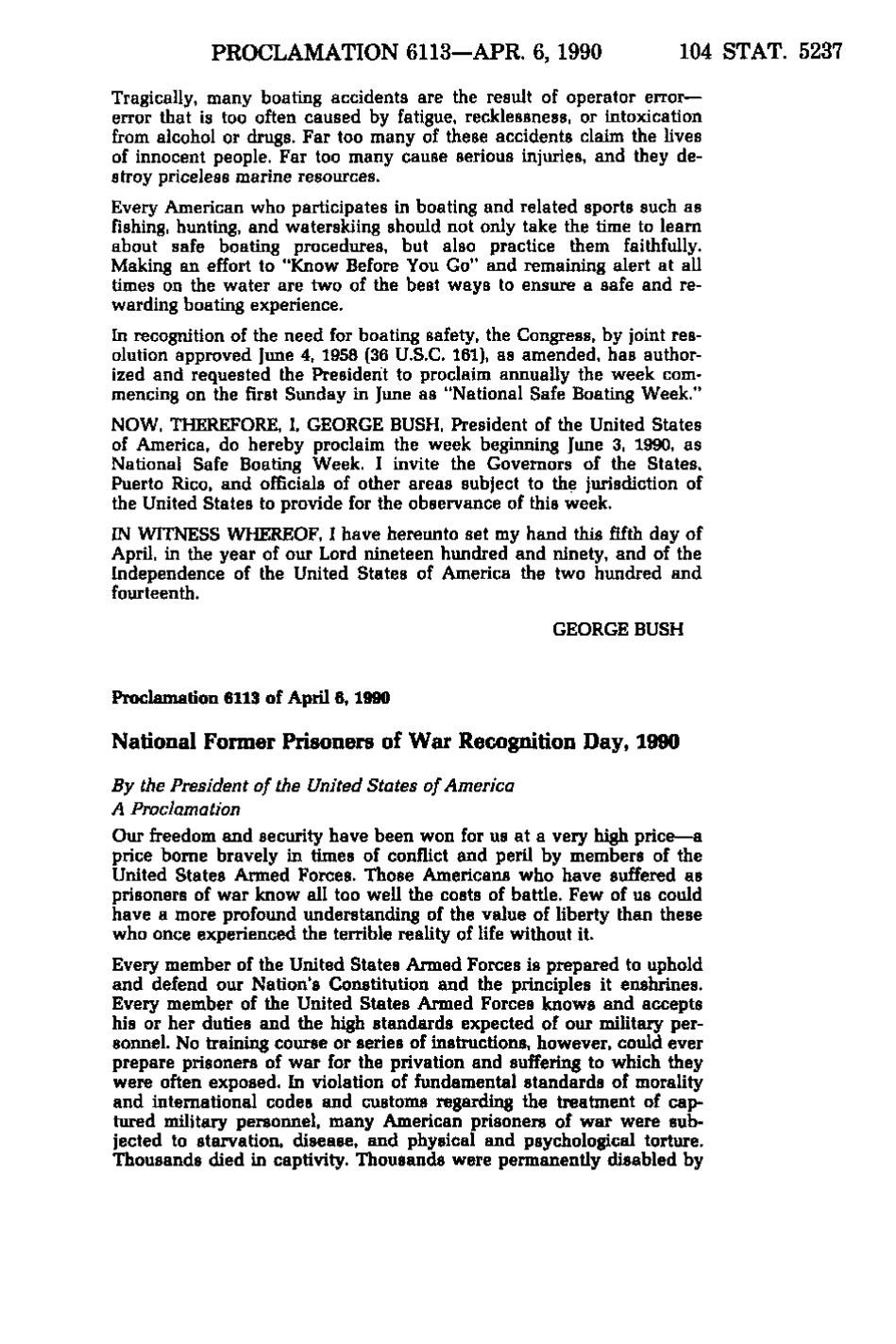PROCLAMATION 6113—APR. 6, 1990 104 STAT. 5237 Tragically, many boating accidents are the result of operator error— error that is too often caused by fatigue, recklessness, or intoxication from alcohol or drugs. Far too many of these accidents claim the Hves of innocent people. Far too many cause serious injuries, and they destroy priceless marine resources. Every American who participates in boating and related sports such as fishing, hunting, and waterskiing should not only take the time to learn about safe boating procedures, but also practice them faithfully. Making an effort to "Know Before You Go" and remaining alert at all times on the water are two of the best ways to ensure a safe and rewarding boating experience. In recognition of the need for boating safety, the Congress, by joint resolution approved June 4, 1958 (36 U.S.C. 161), as amended, has authorized and requested the President to proclaim annually the week commencing on the first Sunday in June as "National Safe Boating Week." NOW, THEREFORE, I, GEORGE BUSH, President of the United States of America, do hereby proclaim the week beginning June 3, 1990, as National Safe Boating Week. I invite the Governors of the States, Puerto Rico, and officials of other areas subject to the jurisdiction of the United States to provide for the observance of this week. IN WITNESS WHEREOF, I have hereunto set my hand this fifth day of April, in the year of our Lord nineteen hundred and ninety, and of the Independence of the United States of America the two hundred and fourteenth. GEORGE BUSH Proclamation 6113 of April 6, 1990 National Fonner Prisoners of War Recognition Day, 1990 By the President of the United States of America A Proclamation Our freedom and security have been won for us at a very high price—a price borne bravely in times of conflict and peril by members of the United States Armed Forces. Those Americans who have suffered as prisoners of war know all too well the costs of battle. Few of us could have a more profound understanding of the value of liberty than these who once experienced the terrible reality of life without it. Every member of the United States Armed Forces is prepared to uphold and defend our Nation's Constitution and the principles it enshrines. Every member of the United States Armed Forces knows and accepts his or her duties and the high standards expected of our military personnel. No training course or series of instructions, however, could ever prepare prisoners of war for the privation and suffering to which they were often exposed. In violation of fundamental standards of morality and international codes and customs regarding the treatment of captured military personnel, many American prisoners of war were subjected to starvation, disease, and physical and psychological torture. Thousands died in captivity. Thousands were permanently disabled by
�
